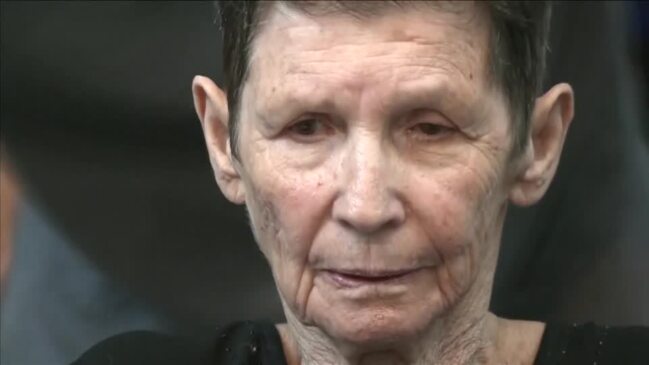Hamas tactics aimed at dividing Israelis over hostages
The Islamist militant group is continuing hostage negotiations in a bid to drive a ‘wedge’ within the Israeli government, sources say, as differences emerge in Israel and abroad about what’s next.

Hamas is continuing hostage negotiations in the hope it can drive a “wedge” within an Israeli government that appears divided over its next steps in the conflict, sources say.
After releasing two women on Monday, the Islamist militant group has been holding out the possibility of allowing up to 50 hostages to go home.
Hamas, which is seeking to restore international goodwill after the attacks on Israel of October 7, has hinted that it wants to see a ceasefire, or at least an end to the bombing campaign, in return for the hostages’ release.
The Israeli authorities have been determined not to link the issue of hostages to other aspects of the war. However, the Israeli government is under pressure from the families of hostages as well as from the Biden administration, which is alarmed both for the safety of US citizens and for the threat of a ground war escalating into a region-wide conflict.
A diplomat briefed on the negotiations said that specific concessions by Israel, such as allowing in fuel supplies to Gaza in return for some hostage releases, were not currently on the cards. But the source added: “I believe the hope is if civilians are released this could lead to potential discussions on de-escalation. That’s the ultimate goal, at least for the mediators.”

Hamas said the release of two American hostages, a mother and daughter, on Friday was a gesture to the Biden administration – and that of Yocheved Lifshitz, 85, and Nurit Yitzhak, 79, on Monday was allowed on humanitarian grounds, as both were elderly and had health problems.
Both releases were mediated by Egypt and Qatar, who have long held the “Hamas file” in the Arab world.
Egypt’s co-operation is vital because of its border with Gaza, while Qatar is home to its political wing.
Hamas does not talk to Israel directly, something that both say is a matter of principle but also allows both sides to disavow negotiating positions when it is politically convenient.
The two women released on Monday were taken to the Gaza border crossing with Egypt and handed over to the International Committee of the Red Cross. On Tuesday (Wednesday AEDT) they were recuperating at Ichilov Hospital in Tel Aviv.

Lifshitz was caught on camera shaking hands with her captors as she was handed over, and saying shalom, which translates as salam in Arabic, or “peace”.
Speaking to reporters outside the hospital, she said she had done so because they had treated her “very nicely”. She said she was fed pitta bread, cheese and cucumber and had a visit by a doctor every day.
Her captors were very keen to maintain sanitation in the underground bunker where she was being held with a handful of other residents of her kibbutz –- not including her husband, Oded, 83, whose whereabouts she did not know.
“They were very concerned with hygiene and were worried about an outbreak of something,” she said. “We had toilets which they cleaned every day.”
The treatment once inside Gaza contrasted with the violence of her capture. After being seized and bound to the back of a motorbike, she was taken first to the town of town of Abasan al-Kabira, and then over the border with other hostages. There she was taken into Hamas’s network of tunnels.
“We went through the tunnels until we reached a large hall,” she said. “We were a group of 25 people, and they separated us according to which kibbutz we were from. There were five of us from kibbutz Nir Oz.”
Her captors would not talk about politics, or explain the attacks.
But they stayed with them. “There was one guard for each of us,” she said. “They spoke to us and ate with us.
“They seemed ready for this, they prepared for a long time, they had everything that men and women needed, including shampoo.”
Both the international community and Israel itself have given mixed messages about how they see negotiations for the release of the other 220 or so hostages playing out. Binyamin Netanyahu, the Israeli prime minister, has said rescuing the hostages is a priority. Yet he also says he will not be deterred from eradicating Hamas, something that is likely to make a hostage negotiation impossible.
President Macron of France, nine of whose citizens are missing or held hostage by Hamas, called for the release of hostages to be the “first priority”.
However, he also called for an international coalition to fight Hamas along the lines of that put together to take on Islamic State in Iraq and Syria.
“France is ready for the international coalition against Daesh [Isis], in which we are taking part for operations in Iraq and Syria, to also fight against Hamas,” he said, standing alongside Netanyahu during a visit to Israel.
The Times







To join the conversation, please log in. Don't have an account? Register
Join the conversation, you are commenting as Logout